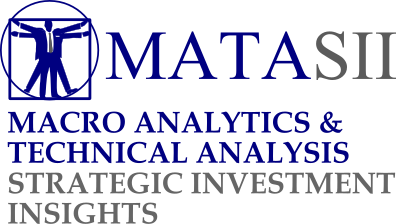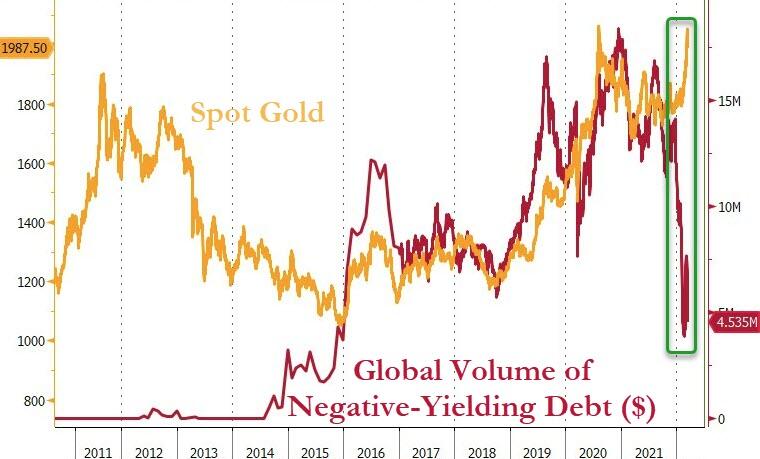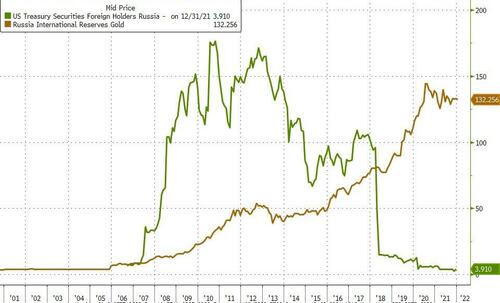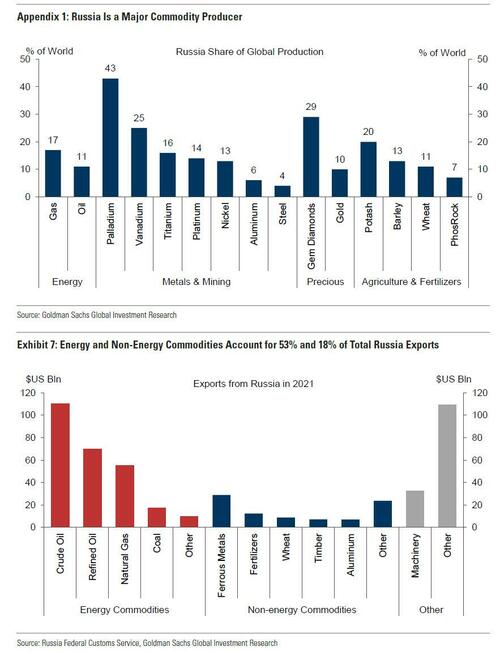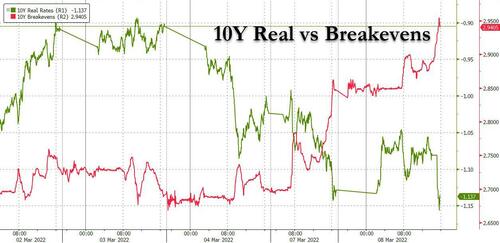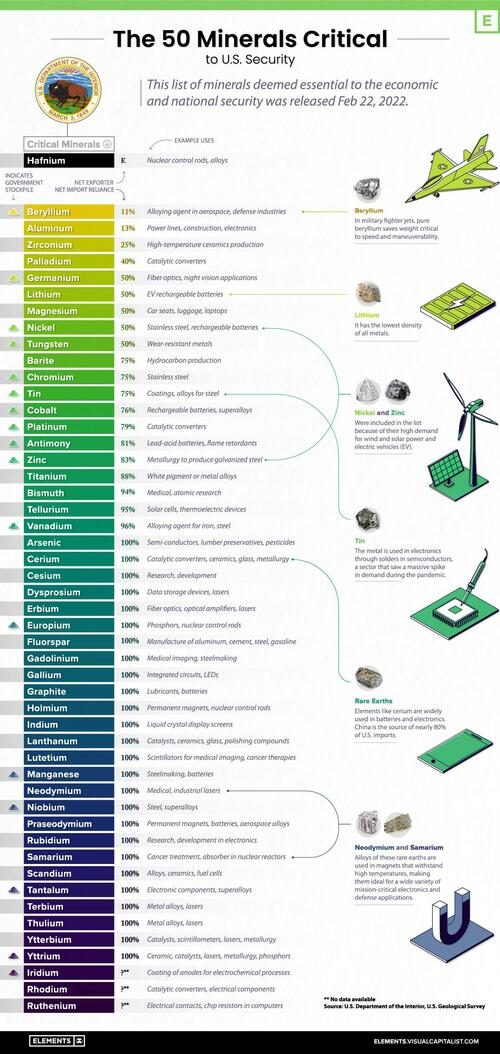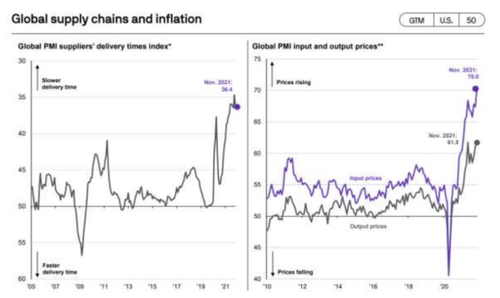Putin could obviously see that the US fiscal and monetary situation was becoming untenable and we suspect he (and President Xi Jinping) decided to use this to create an existential threat to the US and the world financial system. They have both been quite public on their views on a new world order and their place in it.
Putin undoubtedly knows that the West has artificially suppressed the price of gold since former US Treasury Secretary Larry Summers’ work on the “Gibson’s Paradox” in the late 80s. As a consequence Putin has been building his gold reserves steadily for the past 20 years and accelerated accumulation over the 4 years (chart above).
PUTIN’S OPTIONS
“Besides oil and natural gas, Russia exports substantial amounts of food crops and precious metals used in industrial production like aluminum, titanium, palladium, platinum, nickel, cobalt and copper.
Consumers are familiar with the retail end of the supply chain. But they aren’t as familiar with the input end. If you can’t source the raw materials, you can’t produce finished goods.
For example, the farmers who grow food and raise livestock and the butchers and food processors who prepare that output into meat, poultry, bread and dairy products are not the source of the supply; they are intermediaries. The source of the supply chain is in fertilizers made from chemicals, especially nitrogen and phosphate.
Any break or bottleneck anywhere in this supply chain will result in either higher prices or empty shelves at the consumer end.
If Russian nitrogen exports are diminished and prices soar, that has a global impact including on U.S. farms. The impact of higher fertilizer prices does not stop with grain. Most grains are used not for direct consumption by humans but as feed grains for livestock. That means the fertilizer price increase will flow through to meat, poultry, eggs and dairy products.
These breaks are already occurring. Russia and Ukraine together provide more than 25% of the wheat supply in world trade and 20% of global corn sales. Ukrainian exports are already in disarray because of the war and Russian exports are being handicapped by the sanctions.”
We learn through various sources that the Chinese have been “prescient” enough (or well planned and prepared for) to stockpile enormous quantities of grains and other comestible materials to protect their citizens from a summer food crisis.
-
- Twenty per cent of the world’s population has secured more than half the globe’s maize and other grains (Nikkei Asia, 23 December – see Figure 1). That was two months before Putin ordered the invasion of Ukraine, which has made the position over global food supplies even worse.
- China’s dominant position in maize will hit sub-Saharan Africa especially hard, while global shortages of rice will hit Southern and East Asian nations.
